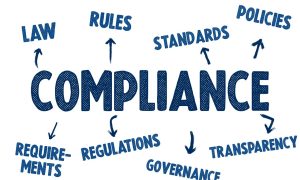Selling your business represents one of the most significant financial decisions you’ll ever make. The letter of intent (LOI) serves as the foundation for your entire transaction, yet many business owners underestimate its critical importance. This preliminary document shapes everything from purchase price negotiations to deal structure, making legal review a crucial step.
Throughout this article, we’ll explore why engaging legal experts early in the process protects your interests and maximizes the outcome of your business sale. You’ll discover how proper legal guidance can save you thousands of dollars while avoiding costly mistakes that could derail your transaction entirely.
Understanding the Legal Implications of an LOI
Letters of intent carry far more legal weight than most business owners realize. These documents establish the basic framework for your entire business sale, creating both opportunities and potential pitfalls that require careful legal analysis and consideration.
Legal documents, such as Letters of Intent (LOIs), contain complex provisions that can bind you to specific terms even before formal contract negotiations begin. Business attorneys understand these nuances and can identify which clauses create immediate legal obligations versus those that remain subject to future negotiation and interpretation.
The legal framework surrounding business transactions involves multiple layers of federal, state, and local regulations. Your business lawyer can ensure your LOI complies with all applicable legal requirements while protecting your position throughout the negotiation process.
Identifying Binding and Non-Binding Clauses

Understanding which provisions in your letter of intent create binding obligations versus non-binding commitments can significantly impact your deal. Legal experts possess the expertise to distinguish between these critical elements and advise you accordingly.
Binding provisions typically include confidentiality agreements, exclusivity periods, and specific procedural requirements. These clauses create immediate legal obligations that can result in significant financial consequences if violated. Non-binding elements typically encompass basic business terms, such as purchase price ranges and general deal structure concepts.
Sophisticated buyers often include subtle language that shifts more provisions into the binding category than sellers realize. Having experienced legal counsel review these distinctions protects you from inadvertently agreeing to terms that limit your negotiating flexibility in the future.
Assurance of Proper Due Diligence
The due diligence process outlined in your Letter of Intent (LOI) determines how thoroughly potential buyers can examine your business operations, financial records, and legal compliance. Legal oversight ensures this process remains balanced and protects your confidential information.
Business owners frequently underestimate the scope of due diligence requests and their potential impact on daily operations. Your legal advisor can establish reasonable boundaries that allow buyers adequate access while minimizing disruption to your business team and key employees.
Proper legal frameworks for due diligence also include clear timelines, specific deliverable requirements, and consequences for buyers who fail to complete their review within agreed periods. These protections prevent deals from dragging on indefinitely while maintaining your competitive position.
Key Sections of an LOI Requiring Legal Expertise
Several critical sections of any letter of intent demand specialized legal knowledge to protect your interests effectively. Purchase price structures, earnout provisions, and closing conditions all require careful legal analysis to avoid future disputes.
Deal structure considerations have a significant impact on your tax consequences and legal liability post-transaction. Whether you’re pursuing an asset sale versus a stock sale affects everything from regulatory approvals to employee obligations, making legal guidance essential for optimal structuring.
The representations and warranties sections create ongoing legal obligations that extend beyond the closing date. Business attorneys help limit your exposure while ensuring you can truthfully make necessary commitments to complete the transaction successfully.
Benefits of Early Legal Involvement
Engaging legal counsel early in the Letter of Intent (LOI) process provides strategic advantages that compound throughout your entire business sale. Early involvement enables your attorney to shape negotiations from the outset rather than reacting to problems as they arise.
Legal experts bring deal experience that helps you understand market-standard terms versus unusual provisions that might signal problematic buyers. This perspective proves invaluable when evaluating multiple offers and determining which potential buyers present the best overall opportunity.
Your legal team can also coordinate with other professional advisors, such as accountants and business brokers, to ensure that all aspects of your transaction are correctly aligned. This coordination prevents conflicts between different elements of your deal structure that could create problems later.
Avoiding Common Pitfalls in LOI Drafting
Business owners often make critical errors when reviewing letters of intent (LOIs) without proper legal guidance. These mistakes can cost tens of thousands of dollars and sometimes derail transactions entirely.
Overlong exclusivity periods represent a frequent mistake that ties up your business while giving buyers excessive time to shop around for a better deal or renegotiate terms. Legal advisors help establish reasonable exclusivity timeframes that balance buyer needs with your ongoing flexibility.
Another common issue involves inadequate confidentiality provisions that fail to protect your sensitive business information throughout the negotiation process. Experienced attorneys draft comprehensive non-disclosure agreements that safeguard your competitive advantages while allowing necessary due diligence.
Streamlining the Negotiation Process
Professional legal representation accelerates negotiations by establishing clear communication channels and standardized procedures. Business attorneys speak the same language as buyer counsel, reducing misunderstandings that can slow progress.
Legal experts also understand which terms are worth fighting for versus those where compromise makes strategic sense. This perspective helps you focus your negotiating energy on issues that truly impact your financial outcome rather than getting bogged down in less significant details.
Your attorney can also prepare standard responses to common buyer requests, allowing for quicker turnaround times on document revisions and maintaining momentum toward closing.
Saving Time and Money Through Legal Guidance
While legal fees represent an upfront investment, proper counsel typically saves money by preventing costly mistakes and ensuring the efficient progression of deals. Business lawyers help you avoid renegotiating terms multiple times due to unclear initial agreements.
Legal experts also identify potential issues early when they’re easier and less expensive to resolve. Problems discovered during late-stage due diligence often require significant concessions or deal restructuring that could have been avoided with proper initial legal review.
Your attorney’s experience with similar transactions provides valuable benchmarks for evaluating whether your deal terms align with market standards, ensuring you don’t leave money on the table through uninformed negotiations.
Sector-Specific Legal Considerations
Different industries face unique legal requirements that generic Letter of Intent (LOI) templates cannot adequately address. Healthcare-related businesses must comply with specific regulatory frameworks, while technology companies face intellectual property considerations that require specialized expertise.
Legal experts familiar with your industry understand these nuances and can ensure your LOI addresses sector-specific requirements from the beginning. This preparation prevents delays later when industry-specific issues surface during due diligence.
Your business attorney can also advise on industry-standard deal structures and terms that buyers in your sector typically expect, helping position your transaction competitively.

Complex M&A transactions involve multiple stakeholders, stringent regulatory requirements, and intricate legal obligations that necessitate professional coordination. Your legal team manages these moving parts while keeping your transaction on track.
Board of directors approvals, shareholder consents, and regulatory filings all require careful timing and proper documentation. Legal experts ensure these requirements are addressed systematically rather than creating last-minute obstacles to closing.
Your attorney also coordinates with buyer counsel to establish efficient processes for addressing conditions precedent and closing obligations, reducing the risk of delays or disputes.
Enhancing Your Negotiating Position with Legal Oversight
Professional legal representation signals to buyers that you’re serious about protecting your interests and understands the complexities involved in business transactions. This positioning often leads to more respectful negotiations and better initial offers.
Legal experts also help you understand your alternatives and walk-away points, providing confidence during complex negotiations. Knowing your legal rights and obligations allows you to negotiate from a position of strength rather than uncertainty.
Your attorney can also identify creative solutions to common sticking points that satisfy both parties’ core interests while moving the transaction forward.
Conclusion
Obtaining a legal review of your Letter of Intent (LOI) before selling your business isn’t just recommended—it’s essential for protecting your financial interests and ensuring a successful transaction completion. The complexity of modern business sales demands professional legal expertise that generic templates and online resources cannot provide.
Smart business owners invest in proper legal counsel early in the process, recognizing that this upfront investment pays dividends throughout the entire transaction. Don’t risk your largest financial transaction by trying to handle legal complexities alone.
Take action today by consulting with experienced business attorneys who specialize in mergers and acquisitions (M&A) transactions. Your future self will thank you for making this wise investment in professional legal guidance.
ALSO READ: What are the Major Factors To Consider When Selling Your Business?
FAQs
A: Legal fees for LOI review typically range from $2,500 to $10,000, depending on deal complexity and attorney experience, representing a small fraction of potential savings.
Q: Can I use the exact attorney who handles my general business matters? A: While it is possible, M&A specialists bring specific expertise in business sales that general practice attorneys may lack, making specialized counsel preferable for complex transactions.
A: Most experienced M&A attorneys can complete initial LOI reviews within 2-5 business days, depending on document complexity and their current workload.
A: Without legal guidance, you risk accepting unfavorable terms, missing essential protections, and facing costly problems during due diligence or closing that could have been prevented.




